traveler | traveller | Alternative forms |
Traveller is a derived term of traveler.
Traveller is a alternative form of traveler.
As nouns the difference between traveler and traveller
is that traveler is an alternative spelling of from=US|lang=en while traveller is one who travels, especially to distant lands.
Other Comparisons: What’s the difference?
travelerEnglishNoun(en noun) |
travellerAlternative forms* traveler (US) Noun(en noun) The Lonely Pyramid , passage=The desert storm was riding in its strength; the travellers lay beneath the mastery of the fell simoom. Whirling wreaths and columns of burning wind, rushed around and over them.}} See also* backpacker |
- Language
-
Traveler and traveller are both English terms.
- Usage
-
Traveler is predominantly used in 🇺🇸 American (US) English (
en-US) while traveller is predominantly used in 🇬🇧 British English (used in UK/AU/NZ) (en-GB).In terms of actual appearance and usage, here’s a breakdown by country, with usage level out of 100 (if available) 👇:
Term US UK India Philippines Canada Australia Liberia Ireland New Zealand Jamaica Trinidad & Tobago Guyana traveler 87
23
13
63
62
13
29
15
30
56
53
0
traveller 13
77
87
37
38
87
71
85
70
44
47
0
- In the United States, there is a preference for «traveler» over «traveller» (87 to 13).
- In the United Kingdom, there is a 77 to 23 preference for «traveller» over «traveler».
- In India, there is a 87 to 13 preference for «traveller» over «traveler».
- In the Philippines, there is a preference for «traveler» over «traveller» (63 to 37).
- In Canada, there is a preference for «traveler» over «traveller» (62 to 38).
- In Australia, there is a 87 to 13 preference for «traveller» over «traveler».
- In Liberia, there is a 71 to 29 preference for «traveller» over «traveler».
- In Ireland, there is a 85 to 15 preference for «traveller» over «traveler».
- In New Zealand, there is a 70 to 30 preference for «traveller» over «traveler».
- In Jamaica, there is a preference for «traveler» over «traveller» (56 to 44).
- In Trinidad & Tobago, there is a preference for «traveler» over «traveller» (53 to 47).
- In Guyana, there is not enough data to determine a preference between «traveler» and «traveller».
- Examples
-
Below, we provide some examples of when to use traveler or traveller with sample sentences.
- Trends
-
📈
See Trends
Looking for a tool that handles this for you wherever you write?
Get Sapling
Examples in Context
Examples of “traveler”
- …1662, by the Ottoman Turkish traveler Evliya Çelebi, who described it…
- …to him as «a great traveler, both on land and paper».
- …«pair» of individuals: the path traveler (Pāli: maggattha) and the fruit…
- …or future for the time traveler when they return home.
- …scenery of North America, a traveler must go by foot.
- …TCIP), and SAE J2354 Advanced Traveler Information Systems standards.
- A traveler and amateur naturalist, he regains…
- National Geographic Travelers main competitors are Condé Nast…
- «The Arkansas Traveler sketch in Vaudeville», America’s Library
- This story, of a traveler who falls in love with…
Examples of “traveller”
- …depreciate his merits as a traveller and naturalist, for the belief…
- George Sandys (born 1578), English traveller, colonist and poet, the seventh…
- In this case, the traveller may choose to stay in…
- …John (1735, 2nd edition) Suffolk Traveller.
- …the score entered on the traveller.
- Porphyrius Uspensky (1804–1885), Russian traveller and theologian
- …fiction roleplaying games such as Traveller, Shadowrun and Heavy Gear (the…
- He also tells the traveller of his poor family and…
- A Traveller in Italy is situated in…
- The Arkansas Traveller
путешественник, бегунок, коммивояжер
существительное ↓
- путешественник; путник
fellow traveller — спутник, попутчик, сочувствующий
inveterate traveller — завзятый путешественник
traveller’s companion — спутник /справочник/ путешественника /туриста/, путеводитель
traveller’s cheque — туристский /дорожный/ чек
traveller’s tales — «охотничьи» рассказы, заведомая ложь
- коммивояжёр (тж. commercial traveller)
- чек на все покупки в разных отделах магазина для оплаты в одной кассе
- театр. занавес (тж. traveller curtain)
- тех. бегунок
Мои примеры
Словосочетания
an ideal tour for the discerning traveller — идеальный тур для взыскательных путешественников 
an observant traveller — наблюдательный путешественник 
traveller’s tale — байка, неправдоподобная история 
air traveller — пассажир авиалинии 
needle traveller — игольчатый бегунок 
shop traveller — передвижной кран в цехе 
size of traveller — номер бегунка 
tip the traveller — вводить в заблуждение; одурачивать 
traveller control — оттяжка каретки 
traveller curtain — занавес 
traveller for riveting shop — подвижный деррик для механической клёпки 
Примеры с переводом
The traveller hungered for his native land. 
Путешественник истосковался по своей родине.
This insurance covers the traveller in any accident. 
Эта страховка страхует путешественника от любого несчастного случая.
The airport can handle large numbers of travelers. 
Аэропорт может обслуживать большое количество путешественников.
A magnificent view rewards the traveller. 
Величественный вид вознаграждает путешественника за все трудности пути.
Bands of robbers living in the hills would prey on any traveller. 
Банды грабителей в этих холмах нападают на всех путников.
The second stage of the journey takes the traveller through Egypt. 
На втором этапе путешествия путников провезут через Египет.
Примеры, ожидающие перевода
Groups of travelers were everywhere that summer. 
This trip will season even the hardiest traveller 
Traveller’s cheques can be cashed at most hotels for a small charge. 
Для того чтобы добавить вариант перевода, кликните по иконке ☰, напротив примера.
Возможные однокоренные слова
travel — путешествие, движение, ход, путешествовать, ехать, дорожный
traveled — проезжий, много путешествовавший
traveler — путешественник, бегунок, коммивояжер
traveling — путешествие, путешествующий, передвижной, дорожный
travels — странствия
Формы слова
noun
ед. ч.(singular): traveller
мн. ч.(plural): travellers
- traveller
- ˈtrævlə сущ.
1) путешественник;
скиталец;
странник fellow traveller ≈ спутник traveller’s cheque ≈ туристский чек traveller’s tales ≈ ‘охотничьи’ рассказы Syn : drifter, fugitive, nomad, tramp, vagabond, vagrant, wanderer, pilgrim, rover
2) коммивояжер (тж. commercial traveller)
3) тех. бегунок
путешественник;
путник — fellow * спутник — inveterate * завзятый путешественник — *’s companion спутник /справочник/ путешественника /туриста/, путеводитель — *’s cheque туристский /дорожный/ чек — *’s tales «охотничьи» рассказы, заведомая ложь коммивояжер (тж. commercial *) чек на все покупки в разных отделах магазина для оплаты в одной кассе (театроведение) занавес (тж. * curtain) (техническое) бегунок (техническое) мостовой кран;
передвижной кран > to tip smb. the * (редкое) вводить в заблуждение, обманывать кого-л.;
одурачивать, околпачивать кого-л.
fellow ~ попутчик
traveller тех. бегунок ~ коммивояжер (тж. commercial traveller) ~ путешественник;
traveller’s cheque туристский чек;
traveller’s tales «охотничьи» рассказы ~ путешественник, турист, вояжер, коммивояжер ~ путешественник ~ турист
~ путешественник;
traveller’s cheque туристский чек;
traveller’s tales «охотничьи» рассказы
Большой англо-русский и русско-английский словарь.
2001.
Полезное
Смотреть что такое «traveller» в других словарях:
-
Traveller — Género Ciencia ficción, space opera Diseñado por Marc W. Miller Editorial Game Designers Workshop Imperium Games Steve Jackson Games QLI/RPG Realms Publishing … Wikipedia Español
-
traveller — s chèque ou traveller s check [ travlɶr(s)ʃɛk ] n. m. • travellers checks plur. 1925; angl. traveller s cheque, angl. amér. traveler s check, de travel(l)er « voyageur » et check « chèque » ♦ Anglic. Chèque de voyage, payable en espèces dans tout … Encyclopédie Universelle
-
traveller — trav‧el‧ler [ˈtrævlə ǁ lər] , traveler noun [countable] TRAVEL someone who travels from one place to another, or to several different places by air, road, rail etc: • The most important thing for a business traveller is to get there on time.… … Financial and business terms
-
Traveller@SG — (Сингапур,Сингапур) Категория отеля: 1 звездочный отель Адрес: 111H, King George s Aven … Каталог отелей
-
traveller — (izg. trèveler) m DEFINICIJA ob. u: SINTAGMA traveller ček bank. vrsta čeka koji se može unovčiti u bilo kojoj banci u inozemstvu; putni ček ETIMOLOGIJA engl … Hrvatski jezični portal
-
traveller — (US also traveler) ► NOUN 1) a person who is travelling or who often travels. 2) a gypsy. 3) (also New Age traveller) a person who holds New Age values and leads an itinerant and unconventional lifestyle … English terms dictionary
-
Traveller — (engl., spr. träwweler), Reisender … Meyers Großes Konversations-Lexikon
-
traveller — index itinerant Burton s Legal Thesaurus. William C. Burton. 2006 … Law dictionary
-
Traveller — Der Begriff Traveller bzw. Traveler (engl. „Reisender“) bezeichnet eine ethnisch soziale Volksgruppe vor allem in Irland und Großbritannien, siehe Pavee ein Science Fiction Rollenspiel, siehe Traveller (Rollenspiel) einen Laufschlitten auf einem… … Deutsch Wikipedia
-
traveller — n. 1) an experienced, seasoned traveller 2) an air traveller 3) a commercial traveller (BE; CE has traveling salesman) 4) (misc.) a fellow traveller ( a Communist sympathizer ) … Combinatory dictionary
-
Traveller — Cette page d’homonymie répertorie les différents sujets et articles partageant un même nom. Traveller est un des premiers jeux de rôle, publié en 1977. Traveller désigne les personnes ayant choisi un mode de vie nomade et souvent tribal en… … Wikipédia en Français
Is it Traveled or Travelled?
Traveler or Traveller?

Answer: The spelling depends on WHERE you are in the world.
Now, the main purpose of this site is to share teacher travel grants and other global education opportunities, but I couldn’t resist creating this grammar article, because the “Traveling” spelling question comes up often, and causes kerfuffles.
I’ve been a full-time English teacher since 2003, so allow me to (ahem, pun coming) SPELL out the “Traveling or Travelling” rule for you in order to spread confidence and accuracy in the world.
Hey — it might even help in editing your applications for teacher fellowships, or assist in determining the correct way to structure a spelling lesson if you decide to teach English abroad!

Traveling vs. Travelling = U.S. vs. British Spelling
It’s all about geographical linguistics, my friends! The United States (and other countries that use American English spelling conventions) are in the “one L” boat for spelling.
In other words, if you’re in New York, or writing for a New York audience, what is correct is to write: “Traveling” because that’s the American spelling. If you’re in London, or writing for a London audience, tap: “Travelling” into your keyboard.
The same goes for all versions of Traveler/Traveller, and Traveled/Travelled: One “L” for countries that use American spelling, and two for places that embrace British English writing conventions. Simple!

Canada: Traveling or Travelling?
Wait… maybe it’s not THAT simple. What about Canada? That country is geographically close to the U.S. and thus should use just one “L,” right? Wrong.
Canada is one of the Commonwealth Countries: more than 50 nations that once were part of the British Empire. Hence, Canada uses the double–L rule, and if you’re in Quebec City, the correct spelling is: Travelling.
Other Commonwealth Countries that use the “two L” spelling (Travelled, Traveller, and so on) include Australia, South Africa, and New Zealand.
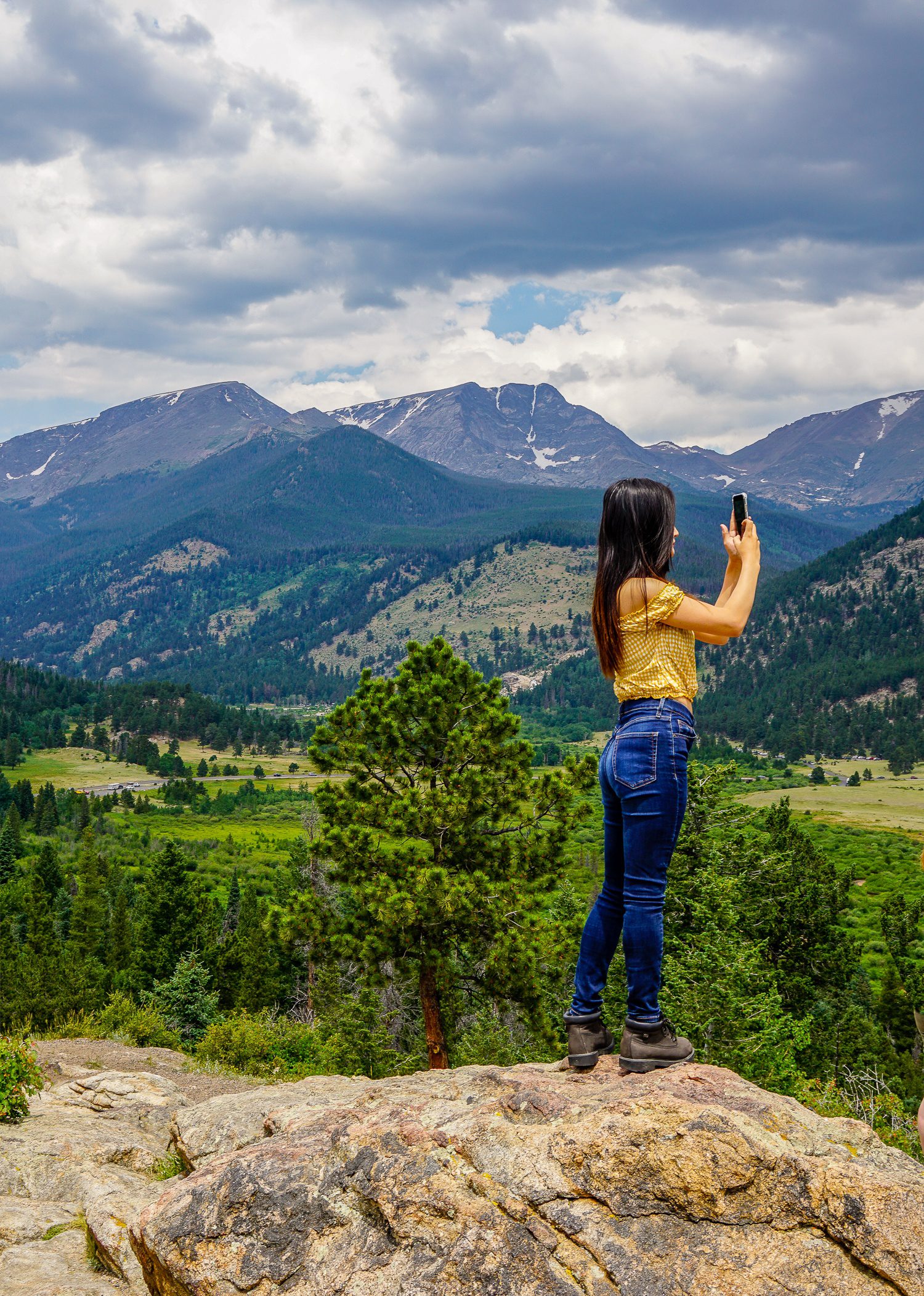
Is this Site Teaching Traveling or Travelling?
The reason this site is called Teaching Traveling with ONE “L” is because I’m American, and my readership is predominantly American. (The one “L” thing is also a nice connection to the fact that my other site is called Around the World “L”!)
Alas, when things get tricky is when geographical worlds start to mix. This issue may pop up for you, too, so let’s address it directly.

What About a Mix of American and British Contexts?
Chances are you may find yourself in a situation where it’s unclear whether you should use the American or British version of our favorite “T” word. What then?
Here’s a frequent example I encounter on this site: If a British teacher types her answers to my interview questions using the double-L spelling, Travelling, do I go in and “correct” every instance of it to the single-L version?
My American spell-checker sure thinks I should, and in fact is yelling at me to fix it at this very moment, its jaggedy red teeth bared!
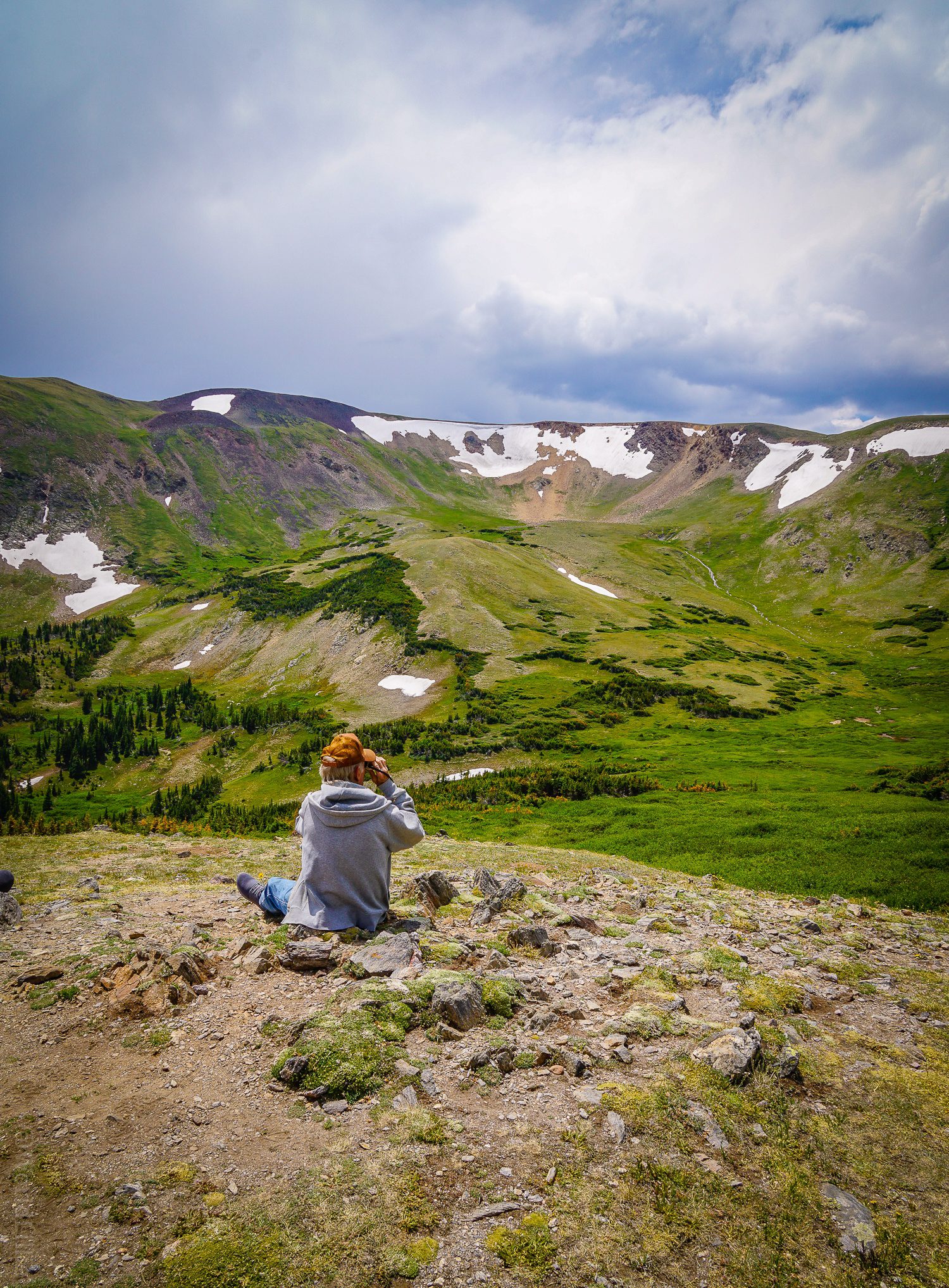
Should Travelling be Changed to Traveling?
So what’s the answer to this two-context spelling dilemma? You have two choices, and either can be justified, depending on what your audience genuinely needs and wants.
Option #1: Pick one spelling and stick to it throughout your body of work. In my case, if I chose this option, I would change all spelling on this site to the American one-L “Traveling.”
Sometimes I do this, clicking through all the U.S. spell-check suggestions to “fix” the British double L, because the article is one I know will mostly reach U.S. readers who might be confused by the unfamiliar spelling. Usually, however, I opt for the other option.
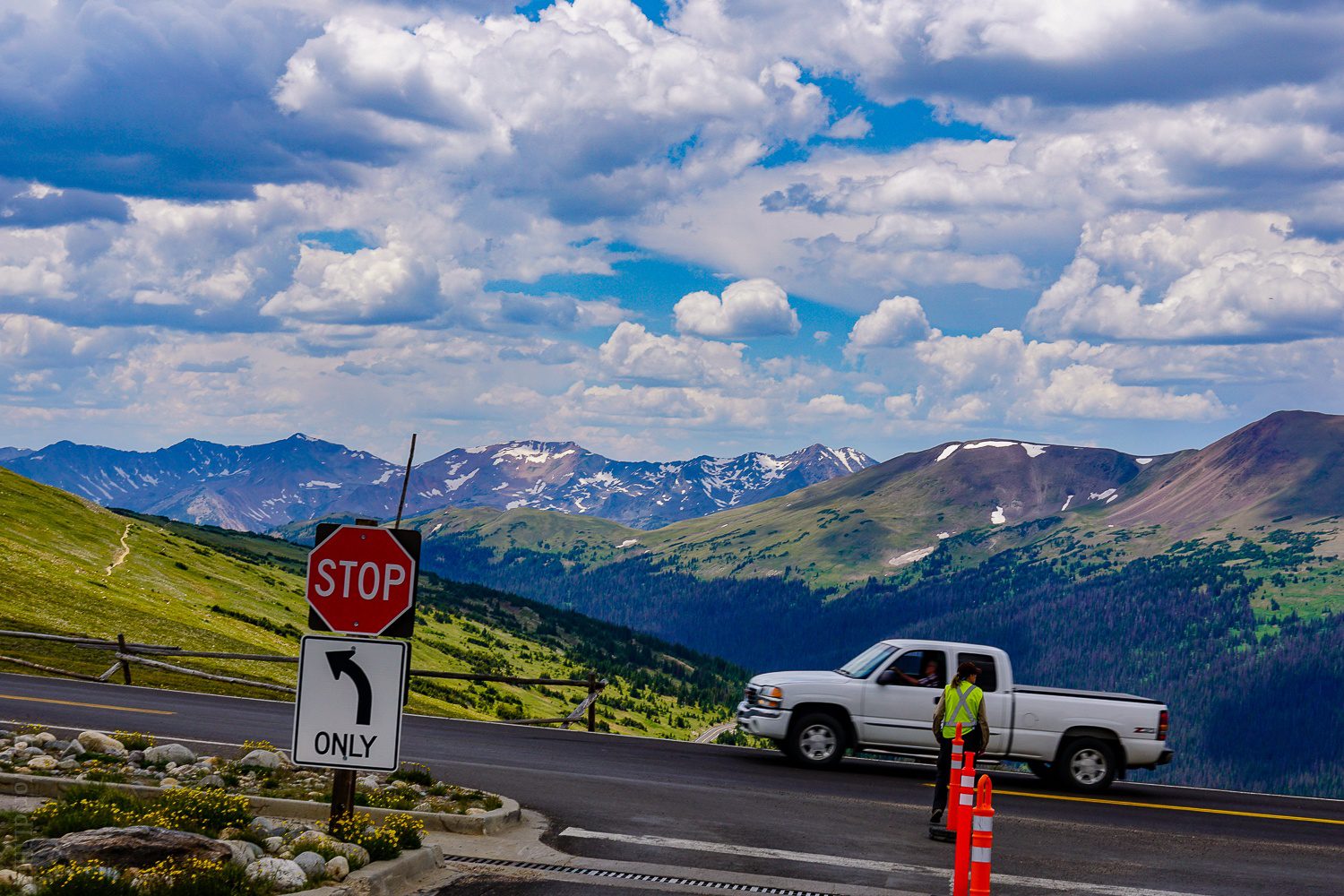
When to Keep “Travelling” Spelling
Option #2: Change between “Travelling” and “Traveling” based on what the majority audience of the piece is expecting.
This option is what I chose to do for interviews with these teachers from Canada and Ghana, because I decided that readers would understand that the “Travelling” spelling was correct in the context of the British English country the speakers were from.
I also knew that the interviewees would also be sharing the articles with their friends, who in turn were used to the double-L spelling. In other words, it wouldn’t be correct for me to “correct” their British spelling in that situation.
Avoiding Traveling vs. Travelling
Bonus Option: Really stuck for whether to use Traveling or Travelling? If your piece is short enough, alter word choice so you don’t need to use either! For example, instead of saying, “I’m a traveller,” write, “I’m a person who loves to travel.” Kind of sneaky and sometimes silly, but if you’re really stuck, it’s an option.
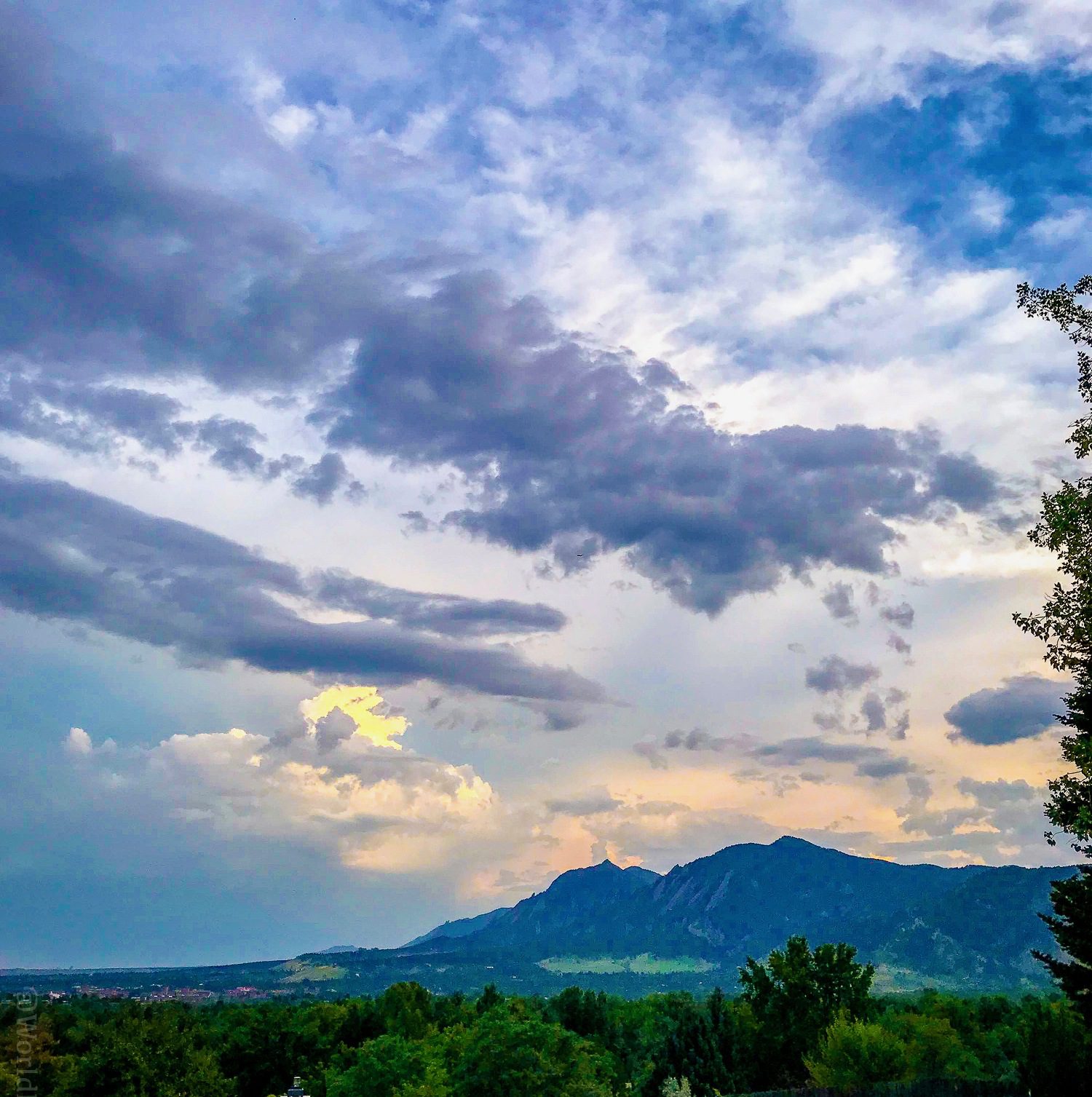
So, Traveling or Travelling?
In summary, it comes down to this: What does the specific audience of your written piece need and expect? Who you are and where you’re from becomes secondary to who they are and what they need.
That’s kind of deep, eh?
I hope you enjoyed this grammar lesson and found it useful. It’s the first one I’ve written (well, besides a tutorial on how to use the word “Dushi“), and I must say that I found it so fun to write that I might just start putting down more of my 15 years of English teaching knowledge into articles…
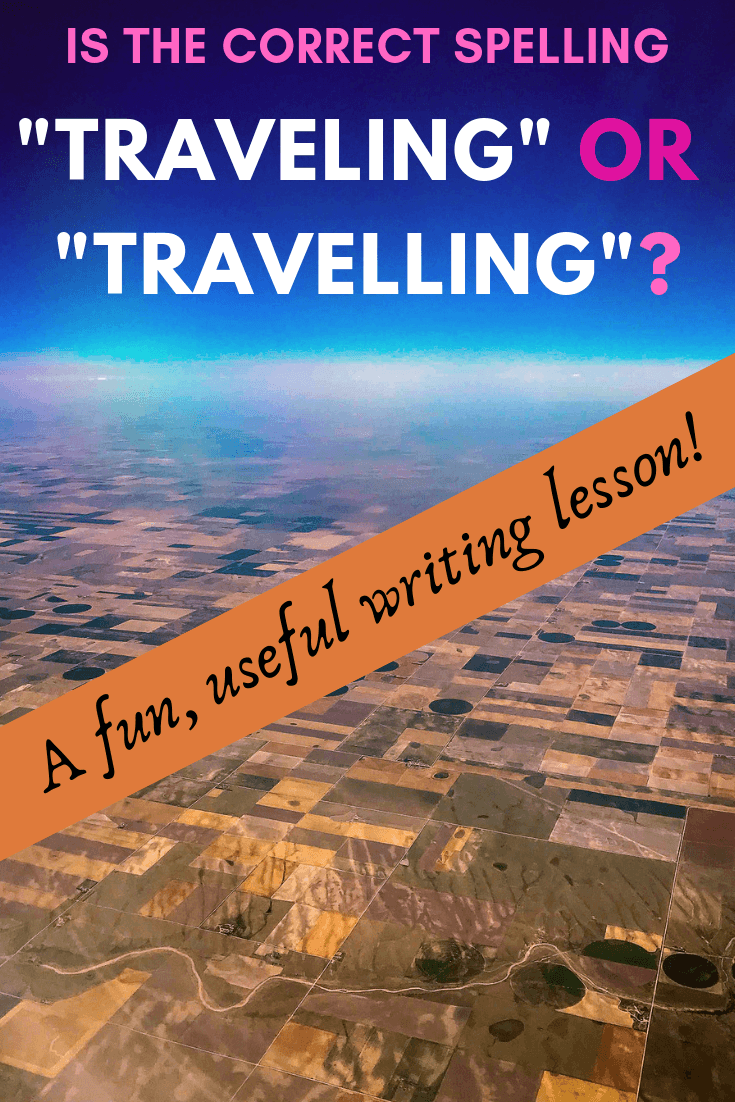
So what about you? What’s been your experience with the Traveling/Travelling divide? Did you know this rule before, and how did you learn it?
Are there other grammar, writing, or global education lessons you’d like to see on these pages? Do share!
The author, Lillie Marshall, is a 6-foot-tall National Board Certified Teacher of English from Boston who has been a public school educator since 2003. She launched TeachingTraveling.com in 2010 to share expert global education resources, and over 1.6 million readers have visited over the past decade. Lillie also runs AroundTheWorld L.com Travel and Life Blog, and DrawingsOf.com for educational art. Do stay in touch via subscribing to her monthly newsletter, and following @WorldLillie on social media!
Бесплатный переводчик онлайн с английского на русский
Хотите общаться в чатах с собеседниками со всего мира, понимать, о чем поет Билли Айлиш, читать английские сайты на русском? PROMT.One мгновенно переведет ваш текст с английского на русский и еще на 20+ языков.
Точный перевод с транскрипцией
С помощью PROMT.One наслаждайтесь точным переводом с английского на русский, а для слов и фраз смотрите английскую транскрипцию, произношение и варианты переводов с примерами употребления в разных контекстах. Бесплатный онлайн-переводчик PROMT.One — достойная альтернатива Google Translate и другим сервисам, предоставляющим перевод с английского на русский и с русского на английский.
Нужно больше языков?
PROMT.One бесплатно переводит онлайн с английского на азербайджанский, арабский, греческий, иврит, испанский, итальянский, казахский, китайский, корейский, немецкий, португальский, татарский, турецкий, туркменский, узбекский, украинский, финский, французский, эстонский и японский.
Asked by: Brain Nienow
Score: 4.8/5
(3 votes)
Traveling is the preferred spelling in the U.S. Travelling is the preferred spelling in the UK or in the Commonwealth. This American-British spelling difference carries for other forms: traveled or travelled and traveler or traveller.
Does Travelled have one L or two?
One or Two L’s? If you look at where the single l forms originate and where the double l forms originate a pattern emerges: in the United States, traveled and traveling predominate, and everywhere else travelled and travelling are preferred.
Is Traveler singular or plural?
The plural form of traveler is travelers.
What is the plural of traveler?
traveler (US) noun. or British traveller /ˈtrævəlɚ/ plural travelers.
What is the plural of sheep?
The plural of sheep is sheep. … The meat of a young sheep is called lamb. When it is used with this meaning, lamb is an uncountable noun.
18 related questions found
What is the gender of Traveller?
The traveller is by definition male – paryatak, sailaani and pathik (Hindi), pravasi and yatri (Gujarati and Marathi), pathik (Sanskrit), musafir (Urdu) for example.
How many L’s are in a Traveller?
In American English, the inflected forms of travel take one l—so, traveled, traveling, traveler, etc. In varieties of English from outside the U.S., these forms take two l’s—travelled, travelling, traveller, etc.
What is the word Traveller mean?
A traveller is a person who is making a journey or a person who travels a lot. … A traveller is a person who travels from place to place, often living in a van or other vehicle, rather than living in one place.
Is it GREY or gray?
Gray and grey are both common spellings of the color between black and white. Gray is more frequent in American English, whereas grey is more common in British English. The varying usage of both grey and gray extends to specialized terms such as animal species (gray/grey whale) and scientific terms (gray/grey matter).
Why does canceled have one L?
Way back when, a man named Noah Webster (of Webster’s Dictionary fame) decided that some words could get along just fine without as many letters as our friends the Brits put in them. … For similar word-shortening reasons, Mr. Webster decided to chop the past tense of “cancel” down to one L.
How do I know if I am traveling?
Alternative Ways of Saying ‘to travel’
- Hit the road. When Ray Charles tells Jack to hit the road he’s telling him to get out of town. …
- Globetrotting. …
- Take off or jet off. …
- Get a little R&R. …
- Gallivant.
What is the UK word for traveler?
Traveling or travelling depends on where is your audience. Traveling is the preferred spelling in the U.S. Travelling is the preferred spelling in the UK or in the Commonwealth. This American-British spelling difference carries for other forms: traveled or travelled and traveler or traveller.
Why do British spell color Colour?
Difference Between Color and Colour
Color is the spelling used in the United States. Colour is used in other English-speaking countries. The word color has its roots (unsurprisingly) in the Latin word color. It entered Middle English through the Anglo-Norman colur, which was a version of the Old French colour.
What does Traveller mean in Ireland?
Travellers are an indigenous minority who, historical sources confirm, have been part of Irish society for centuries. Travellers long shared history, cultural values, language, customs and traditions make them a self-defined group, and one which is recognisable and distinct.
What is LL in English?
(-əl ) -‘ll is the usual spoken form of ‘ will‘. It is added to the end of the pronoun which is the subject of the verb. For example, ‘you will’ can be shortened to ‘you’ll’.
What does l mean in UK?
L is the symbol for ‘learner driver‘ in Britain. A large red ‘L’ on a white background is attached to cars in which people are learning to drive.
How do you spell Traveller in Australia?
American English uses a single ‘l’ in words such as ‘traveling’, ‘traveled’ and ‘traveler’. British/Australian English uses a double ‘ll’, as in ‘travelling’, ‘travelled’ and ‘traveller’.
What gender travels the most?
Surprisingly, most studies today show that women travel the most, even though men are traditionally assumed to travel more. To compare female to male travelers in the US, 63% are female, whereas only 37% are male.
What is the gender of player?
Explanation: The man who plays is called a male player and the female who plays is called a female player.
Is singer a common gender?
Common gender is a type of noun which denotes either male or female gender. … Examples of common gender are animal, artist, children, servant, enemy, pupil, neighbor, minister, doctor, employee, singer, peon, musician, dancer, etc.
Can I say sheeps?
No, “sheeps” is not a gramatical English word. The plural of sheep is also sheep. English has a number of nouns whose plural is the same as the singular.
What is a female sheep called?
What exactly is a ewe? A ewe is a female sheep over 1 year of age. Most ewes who are 1 year or older have had at least one lamb. This is because sheep are bred around 9 months old to have lambs when they are a little over 1 year old.
What is the plural of person?
So basically, both person and people can be used as singular nouns, people can be used as a plural noun and persons and peoples are also acceptable plural forms.

